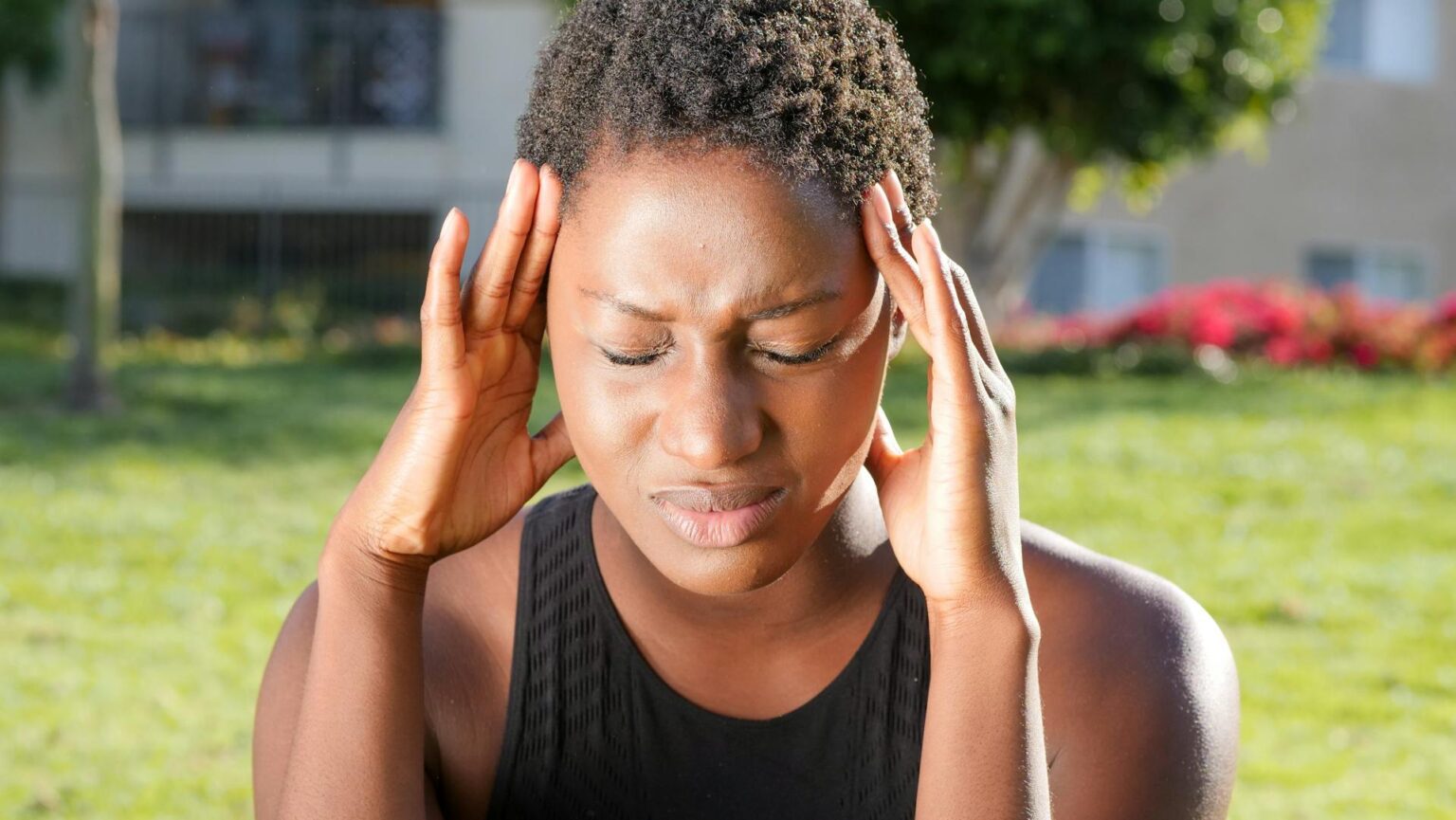Tinnitus symptoms often fluctuate between different times of day and may seem louder because of the environment, stress levels, or the absence of other background noises, making tinnitus feel more pronounced and intrusive.
Some clients note that their tinnitus is always louder at certain times, such as when relaxing in bed. Others report that tinnitus gets louder over time, which usually means that the underlying cause contributing to tinnitus requires treatment to prevent potential hearing loss.
We often refer to increased volume intensity as a tinnitus spike, although the nature of the spike could vary significantly between two people. For example, a spike might mean the pitch, tone, volume or frequency of the noise you can hear increases, which might last for anything from a few minutes to several weeks.
In this article we’ll clarify some of the reasons your tinnitus may be getting louder and why it is highly advisable to take action to reduce and even eliminate tinnitus symptoms to prevent them from worsening.

Key Takeaways:
- Many people find that tinnitus may get loud at different times or spikes for periods of time before receding again.
- Increases in tinnitus volumes can last for a few minutes, remain louder for several hours, or even continue for a number of days at a time.
- Tinnitus may get louder due to dehydration, medication reactions, and sleep deprivation. Others are part of how your brain filters and manages tinnitus. Either way, professional, targeted tinnitus therapies can help.
What Causes Tinnitus to Get Louder?
The audiologists at Regain Hearing Clinic often speak with clients who assume their tinnitus gets louder at random. Still, we can usually identify factors that are making tinnitus worse or creating the perception of a louder sound.
It can be difficult to pinpoint an exact cause, but there are lots of things that can trigger or exacerbate tinnitus:
- Fatigue and sleep deprivation.
- Increased levels of stress or anxiety.
- Exposure to very loud noises.
- Dehydration or increased consumption of sodium, sugar, caffeine or another stimulant.
- Reactions to some vitamins or medications.
- An allergic reaction, increased air pollution or pollen.
One of the best ways to clarify why tinnitus seems worse or is spiking is to try keeping a journal so you can see whether there are consistent times or locations when your tinnitus is louder.
However, it is also important to book a full hearing assessment if your tinnitus is causing distress or appears to be getting worse. Depending on the reasons for your tinnitus, an ear health check may provide the answer, such as treating an infection that is responsible for your tinnitus symptoms.
Understanding the Connection Between Tinnitus Spikes and Stress
Disturbed sleep and stress are the most common reasons tinnitus starts getting louder, but it can also be worsened by tinnitus, where internal noises in your ears can make it harder to sleep and prove upsetting, frustrating and bothersome.
There are also some types of stress conditions which have very similar symptoms to tinnitus, which could mean that periods of anxiety cause your tinnitus to spike, which in turn can exacerbate your stress levels.
Focusing on good sleep, exercise, and healthy nutrition can help minimise the impacts, but in the longer term, it is always worth speaking to your GP or another practitioner to ensure your stress is kept under control and to schedule a hearing assessment with an audiologist.
The cycle of stress and tinnitus, combined with poor sleep, can become difficult to live with. However, by following a proven tinnitus therapy programme that gives you the tools and techniques to ‘switch off’ from your tinnitus, you may find that symptoms become far less prominent.
What do our audiologists say?
“
Understanding the factors that make tinnitus seem louder is crucial for effective management. Stress, environmental changes, and even diet can all play a role in exacerbating symptoms. By addressing these triggers through targeted therapies and lifestyle adjustments, we can significantly improve the quality of life for those affected by tinnitus.” – Lindsay Fletcher, Principal Audiologist at Regain Hearing
Why Tinnitus Often Appears Louder at Night
Another frequent cause of louder tinnitus is simply being in a quiet environment. It is normal for clients to tell us their tinnitus feels significantly louder at bedtime or when they wake up at night.
In most cases, the tinnitus sounds are exactly the same as at any other point, but because there are no noises around for your brain to focus on, it concentrates on the tinnitus, which makes it seem louder again. Some people use masking devices or play sounds like white noise, which can help.
Silence can also activate stress responses, making the auditory system more sensitive and alert. When we feel at risk or in danger, our nervous system automatically makes our hearing more acute to detect threats – which also means tinnitus seems to be considerably louder because of the lack of background noise.
These responses to quiet are why it is often difficult to get to sleep when tinnitus symptoms worsen and increase the importance of seeking professional help to avoid prolonged periods of low-quality or minimal sleep.
Related reading:
Increased Tinnitus Symptoms as a Medication Side-Effect
We mentioned earlier that some medicines, including prescription drugs, can trigger tinnitus or make the sounds appear louder. Although this is less common, there are also cases where tinnitus is itself a side-effect, particularly if you have an undiagnosed sensitivity to a specific ingredient and haven’t taken a medication before.
Although not an exhaustive list, some of the medicines that can trigger tinnitus include:
- Some types of antibiotics used for infections.
- NSAIDs – like ibuprofen and stronger types of aspirin.
- Diuretics that address water retention or fluid build-up.
- Medications containing quinine often to treat cramping.
It isn’t advisable to stop taking a prescribed medication suddenly and without speaking to your GP, although switching to an alternative or ending the course of treatment may improve your tinnitus.
Resolving Issues With Tinnitus Getting Louder
As we’ve noted, the best solution is to book a hearing assessment and ear health check to get to the bottom of the reasons your tinnitus is getting louder – and often discover the underlying cause that has promoted your tinnitus symptoms in the first place.
Many people find that their tinnitus is caused by impacted earwax or infections. If that blockage isn’t removed and the infection isn’t treated, their tinnitus will inevitably continue to worsen and seem louder over time.
Frequently Asked Questions
Why is my tinnitus getting worse over time?
Tinnitus can worsen over time due to several factors, including prolonged exposure to loud noise, increased stress or anxiety, certain medications, or underlying health conditions such as hearing loss. Lifestyle habits, like poor sleep or excessive caffeine and alcohol consumption, can also contribute. If your tinnitus is progressively getting worse, it’s important to consult a specialist to explore possible causes and management strategies.
What is a tinnitus spike?
A tinnitus spike is a temporary increase in the loudness or intensity of tinnitus. It can last for a few hours, days, or even weeks before returning to baseline. Spikes can be triggered by stress, poor sleep, loud noise exposure, diet (e.g., caffeine or alcohol), illness, or changes in medication. While they can be unsettling, they are usually temporary and manageable with relaxation techniques and sound therapy.
Why is tinnitus worse some days?
Tinnitus can fluctuate in intensity due to various factors, including stress, fatigue, diet, hydration, and environmental noise exposure. On some days, your brain may be more sensitive to the ringing, especially if you’re tired or anxious. External factors like high caffeine intake, alcohol, or lack of background noise can also make it seem louder. Keeping track of triggers and practising relaxation techniques can help reduce fluctuations.
Regain Hearing provides a comprehensive range of hearing tests and appraisals and can provide further advice about treating or managing your tinnitus once we have a good idea of the factors involved. We offer hearing tests all over Kent and South East London including hearing tests in Sevenoaks, Maidstone, Medway and Thanet.



 Understanding the factors that make tinnitus seem louder is crucial for effective management. Stress, environmental changes, and even diet can all play a role in exacerbating symptoms. By addressing these triggers through targeted therapies and lifestyle adjustments, we can significantly improve the quality of life for those affected by tinnitus.” –
Understanding the factors that make tinnitus seem louder is crucial for effective management. Stress, environmental changes, and even diet can all play a role in exacerbating symptoms. By addressing these triggers through targeted therapies and lifestyle adjustments, we can significantly improve the quality of life for those affected by tinnitus.” – 


